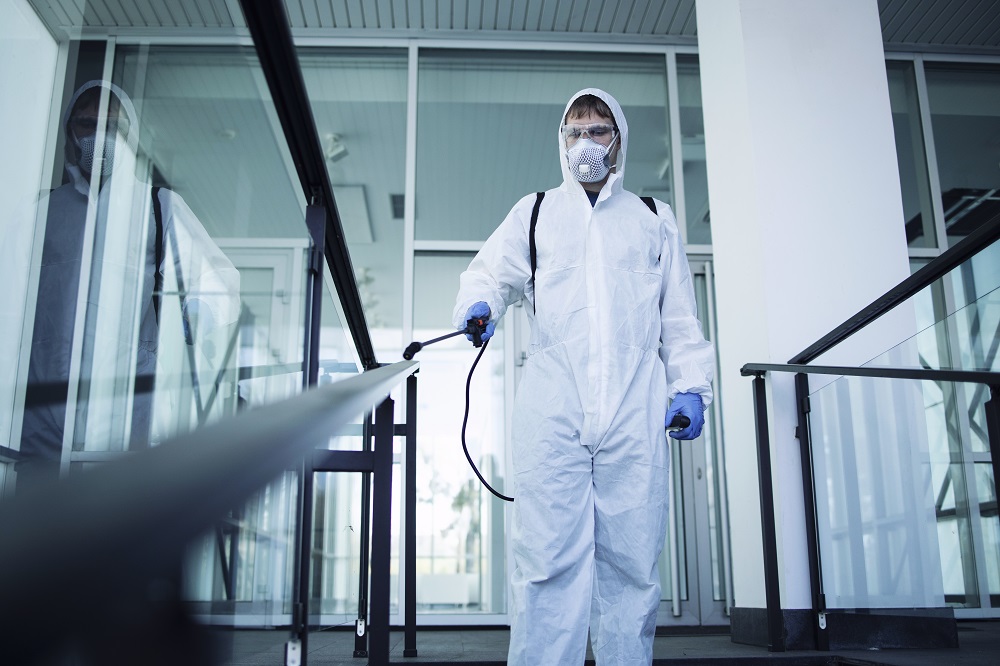
Cleaning has always been important, but never so important as during a viral pandemic. COVID-19 has brought cleaning practices to the forefront of all healthcare facilities, especially aged care.
It is important CEOs, managers, and frontline supervisors review their cleaning policies and ensure they are reflecting the information in their state or territory guidelines. The policies should be appropriately referenced and updated as new information is emerging and becoming ‘best practice.
The gap in many facilities is getting the information into the workforce and into staff practice. Training of staff in residential aged care has historically focused on the care and lifestyle areas.
The hospitality and cleaning staff are often included in fire training, manual handling, and some infection control sessions that often involve food safety.
The missing link has been infection control focusing on cleaning, chemical safety and personal protective equipment (PPEF) donning, doffing and disposing correctly.
While hand hygiene competencies are usually on the education calendar, the question is asked, how much emphasis has there been in providing understandable theory, demonstration, and practice with checking commonly missed areas under the blue light? Is there a place for more frequent audits?
Facility staff who undertake housekeeping duties can easily be added to existing education sessions planned for care staff, however, their role is specific and involves chemical safety as a priority and practice with PPE to be able to perform cleaning duties safely for vulnerable people.
In many situations when using external suppliers, it is the contract cleaning company that takes responsibility for education and training of their staff.
While some may provide online or basic practice, many fall short of ensuring staff follow safe work practice laid out in their policy and procedures. It is the facility that should ensure training is meeting their requirements in practice.
It is often a reactive approach to training from a safety quality commission audit that enables companies to become compliant and staff to be trained properly.
As a former aged care facility manager and educator, I am aware of the gaps in training and practice. With the emergence of a pandemic, facilities need to ensure infection control training is not only for facility staff but for contract cleaning companies.
Staff who attend training should have the opportunity to receive individual instruction in donning and doffing PPE. Many staff are from diverse backgrounds so adjustment to learning should be considered.
An example of basic cleaning training would be to use the NSW Environmental cleaning and disinfection principles for residential aged care which includes:
- Explaining the importance of cleaning first because organic matter can inactivate many disinfectants.
- Cleaning reduces the soil load, allowing the disinfectant to work.
- Removal of germs such as the virus that causes COVID-19 requires thorough cleaning followed by disinfection.
The length of time that SARS-COV-2 (the cause of COVID-19) survives on inanimate surfaces will vary depending on factors such as the amount of contaminated body fluid e.g. respiratory droplets or soiling present and environmental temperature and humidity.
This should prompt a discussion about the virus and their knowledge or perception. Coronaviruses can survive on surfaces for many hours but are readily inactivated by cleaning and disinfection. It is good practice to routinely clean surfaces as follows:
- Clean frequently touched surfaces with detergent solution
- Clean general surfaces and fittings when visibly soiled and immediately after any spillage.
There are two main areas of cleaning:
- Frequently touched surfaces
- Minimally touched surfaces
The training should become interactive and comfortable, an ideal forum for learning. The practice with PPE is less threatening when done in small groups and in our present situation, socially distancing is required, and each student has their own set of PPE to use.
Information in the training can be taken from federal state or territory guidelines and may assist the company in updating their policies and procedures.
Recognising that information is always current and changes frequently at this time. It is the trainer’s responsibility to constantly update course content.
Lesley Jones is head trainer with Smarter Skills. Lesley will be presenting at the ISSA Cleaning & Hygiene Expo in Sydney 2021
Comment below to have your say on this story.
If you have a news story or tip-off, get in touch at info@incleanmag.com.au.
Sign up to INCLEAN’s newsletter.